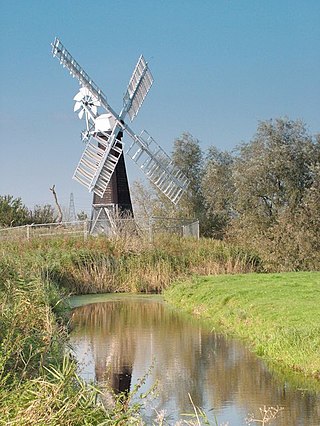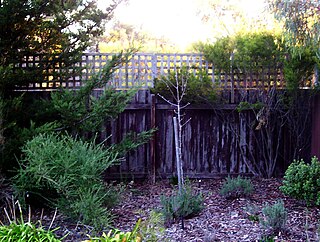Related Research Articles

Estoppel in English law is a doctrine that may be used in certain situations to prevent a person from relying upon certain rights, or upon a set of facts which is different from an earlier set of facts.

English trust law concerns the protection of assets, usually when they are held by one party for another's benefit. Trusts were a creation of the English law of property and obligations, and share a subsequent history with countries across the Commonwealth and the United States. Trusts developed when claimants in property disputes were dissatisfied with the common law courts and petitioned the King for a just and equitable result. On the King's behalf, the Lord Chancellor developed a parallel justice system in the Court of Chancery, commonly referred as equity. Historically, trusts have mostly been used where people have left money in a will, or created family settlements, charities, or some types of business venture. After the Judicature Act 1873, England's courts of equity and common law were merged, and equitable principles took precedence. Today, trusts play an important role in financial investment, especially in unit trusts and in pension trusts. Although people are generally free to set the terms of trusts in any way they like, there is a growing body of legislation to protect beneficiaries or regulate the trust relationship, including the Trustee Act 1925, Trustee Investments Act 1961, Recognition of Trusts Act 1987, Financial Services and Markets Act 2000, Trustee Act 2000, Pensions Act 1995, Pensions Act 2004 and Charities Act 2011.

English contract law is the body of law that regulates legally binding agreements in England and Wales. With its roots in the lex mercatoria and the activism of the judiciary during the industrial revolution, it shares a heritage with countries across the Commonwealth, from membership in the European Union, continuing membership in Unidroit, and to a lesser extent the United States. Any agreement that is enforceable in court is a contract. A contract is a voluntary obligation, contrasting to the duty to not violate others rights in tort or unjust enrichment. English law places a high value on ensuring people have truly consented to the deals that bind them in court, so long as they comply with statutory and human rights.

Keech v Sandford[1726] EWHC J76 is a foundational case, deriving from English trusts law, on the fiduciary duty of loyalty. It concerns the law of trusts and has affected much of the thinking on directors' duties in company law. It holds that a trustee owes a strict duty of loyalty so that there can never be a possibility of any conflict of interest.

Bruton v London and Quadrant Housing Trust[1999] UKHL 26 is an English land law case that examined the rights of a 'tenant' in a situation where the 'landlord', a charitable housing association had no authority to grant a tenancy, but in which the 'tenant' sought to enforce the duty to repair on the association implied under landlord and tenant statutes. The effect of the case is to create the relationship of de facto landlord and tenant between the parties.

City and Westminster Properties (1934) Ltd v Mudd [1959] Ch 129 is an English contract law case, regarding the parol evidence rule. It illustrates one of the large exceptions, that a written document is not deemed to be exhaustive of the parties intentions when there is clear evidence of a collateral contract. It shows that even evidence from outside a written agreement may contradict evidence inside it.

Lloyds Bank Ltd v Bundy[1974] EWCA 8 is a landmark case in English contract law, on undue influence. It is remarkable for the judgment of Lord Denning MR who advanced that English law should adopt the approach developing in some American jurisdictions that all impairments of autonomy could be collected under a single principle of "inequality of bargaining power."

Street v Mountford[1985] UKHL 4 is an English land law case from the House of Lords. It set out principles to determine whether someone who occupied a property had a tenancy, or only a licence. This mattered for the purpose of statutory tenant rights to a reasonable rent, and had a wider significance as a lease had "proprietary" status and would bind third parties.

Proprietary estoppel is a legal claim, especially connected to English land law, which may arise in relation to rights to use the property of the owner, and may even be effective in connection with disputed transfers of ownership. Proprietary estoppel transfers rights if
Easements in English law are certain rights in English land law that a person has over another's land. Rights recognised as easements range from very widespread forms of rights of way, most rights to use service conduits such as telecommunications cables, power supply lines, supply pipes and drains, rights to use communal gardens and rights of light to more strained and novel forms. All types are subject to general rules and constraints. As one of the formalities in English law express, express legal easements must be created by deed.

English land law is the law of real property in England and Wales. Because of its heavy historical and social significance, land is usually seen as the most important part of English property law. Ownership of land has its roots in the feudal system established by William the Conqueror after 1066, and with a gradually diminishing aristocratic presence, now sees a large number of owners playing in an active market for real estate.

Winter Garden Theatre (London) Ltd v Millennium Productions Ltd [1948] AC 173 is an English land law case, concerning licenses in land.

Verrall v Great Yarmouth BC [1981] QB 202 is a land and contract law case on the arbitrary revocation of an agreed, future licence in land for good consideration.

Mikeover Ltd v Brady [1989] is an English land law case, concerning the definition of leases, specifically a standard tenancy as opposed to a licence. Here a licence was confirmed and upheld where two former co-habitees had fallen out and separated; removing from the remaining licensee, in arrears, the extra time to remain afforded by the old Rent Act 1977 type tenancies which he hoped to benefit from.
Pwllbach Colliery Co Ltd v Woodman [1915] AC 634 is an English land law case, concerning easements.

Green v Lord Somerleyton is an English land law and tort law case, concerning easements of surface water/ditch drainage and the tests for nuisance in English law. In this case there was no remedy for the flooding found to be natural and not recently exacerbated by the defendant. The court attached to the properties an old, 1921, easement of drainage passing both land holdings, in this case two common examples of lowland water engineering, dykes controlled against tides by one-way valves, mentioned in the properties' deeds and, duplicatively, established the right by prescription. The dykes lay in the claimant's own land who had failed to maintain them and failed to account for the flows caused by reduction of water extraction from the lake upstream. The claimant had failed to repair the pump and clear ditches on his own land which had been agreed between the previous owners to give channelled drainage from a lake above. It was for the claimant to recognise the danger posed by its waterline being raised in 1954 by the building up of a weir.

Crow v Wood[1970] EWCA Civ 5 is an English land law case, confirming an easement commonly exists for the right to have a fence or wall kept in repair expressed in earlier deeds, which is a right which is capable of being "granted" by law and secondly, as a separate but on the facts, related issue, of the right of common land pasture asserted by continued use.

Rhone v Stephens[1994] UKHL 3 is an English land law case, at the court of final appeal level, concerning the succession to the burden of positive covenants in freehold land within which it is of relatively broad application. It is distinguished in cases of regular payments related to easements in English law which are enjoyed and some other narrow categories, many of which are similarly well-known and well-cited notable cases.

Halsall v Brizell [1957] Ch 169 is an English land law case, concerning the enforceability of a positive covenant, that is required positive obligations, in this case the obligation to pay money for upkeep and repair.
First Tower Trustees Ltd v CDS Ltd [2018] EWCA Civ 1396 is an English contract law case, concerning the Misrepresentation Act 1967.